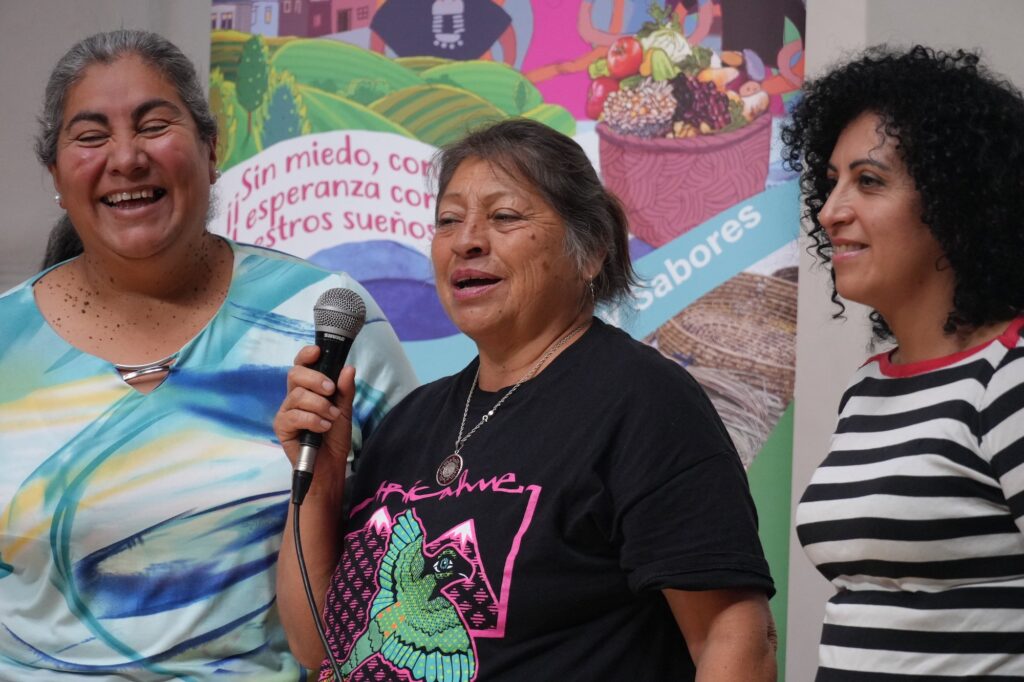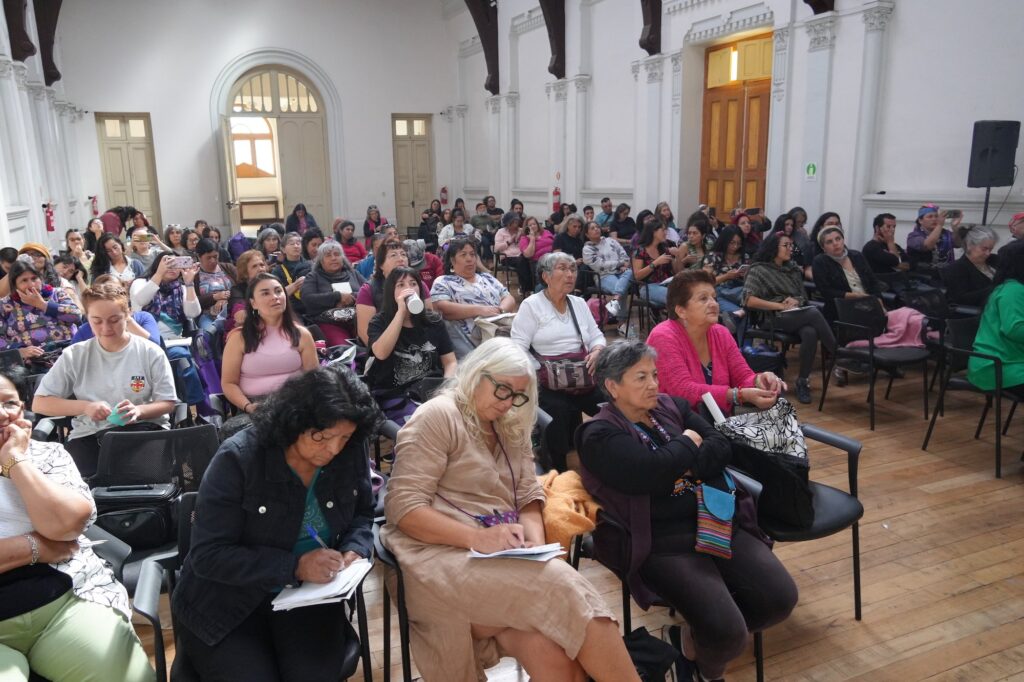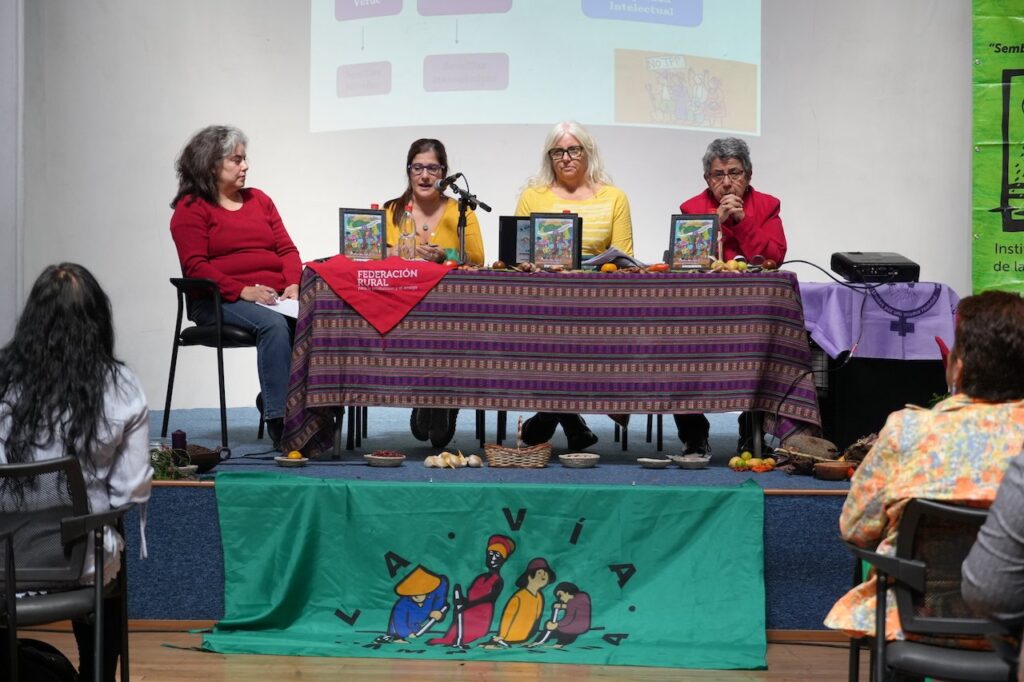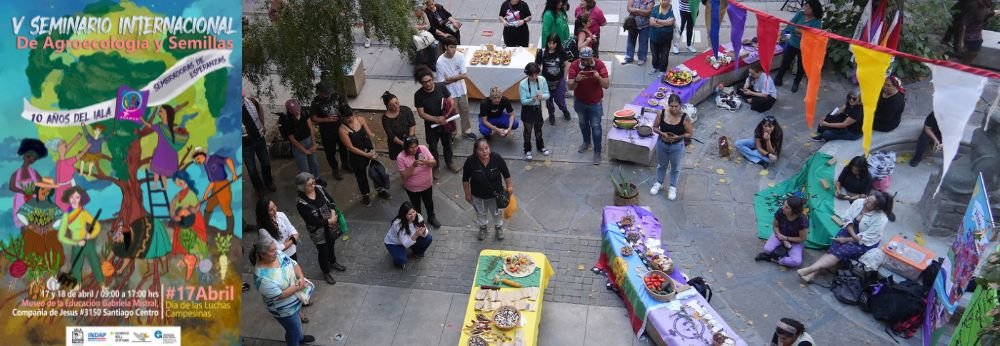In the framework of the International Day of Peasant Struggles, the V International Seminar on Agroecology and Seeds took place in Chile on April 17th and 18th. This event was organized by the National Association of Rural and Indigenous Women (ANAMURI) and the IALAs (Sembradoras de Esperanzas).

The seminar, held at the Gabriela Mistral Education Museum in downtown Santiago, served as a platform for sharing information and research related to seeds, peasant agriculture, and the advancing risks of agribusiness on the continent. Topics included Seed Laws and the digitization of agriculture, known as Agriculture 4.0, which envisions the countryside without peasants, thereby posing setbacks in terms of rights, including the right to food and food sovereignty.

Despite the threats posed by agribusiness, which is seen as an extension of capitalism in rural areas, peasant organizations continue to develop strategies and tools of resistance. These include the Declaration of Peasant Rights, the establishment of new monitoring mechanisms, processes of agroecological political education, organizational strengthening, internationalism, and social and human mobilization. It is argued that the Latin American Agroecology Institutes (IALAs) play a central role in highlighting contradictions for a global understanding of the reality that needs transformation in favor of the common heritage of peoples and humanity.
The struggle for land, seeds, and food sovereignty involves collaborative efforts among peasant organizations, allies from rural and urban areas, all increasingly recognizing themselves as political actors fighting for workers’ rights.

International and national panelists included representatives from organizations such as CLOC and La Vía Campesina, as well as allied organizations like the ETC Group, Friends of the Earth International for Latin America and the Caribbean (ATALC), Fensuagro from Colombia, Rural Federation for Production and Rooting in Argentina, Landless Workers’ Movement (MST) Brazil, National Peasant Indigenous Movement (MNCI) of Argentina, Institute of Agricultural Development (INDAP) and National Agriculture Research Institute (INIA) Chile, Urban Agriculture Movement (MAU), Popular Education for Health (EPES), Urban Gardens of Valparaíso. The event concluded with a seed exchange, enriching participants with the knowledge, principles, and wisdom of indigenous peoples and peasants regarding seed and earth care.
Delegates from ANAMURI and the IALA Sembradora de Esperanzas, in their 10 years of sowing, answered the call from various parts of the national territory, along with representatives of CLOC and La Vía Campesina Chile, as well as collectives, students, organizations, and urban agriculture movements from different regions of the country.
With conviction and hope, we turn our dreams into action and struggle!

